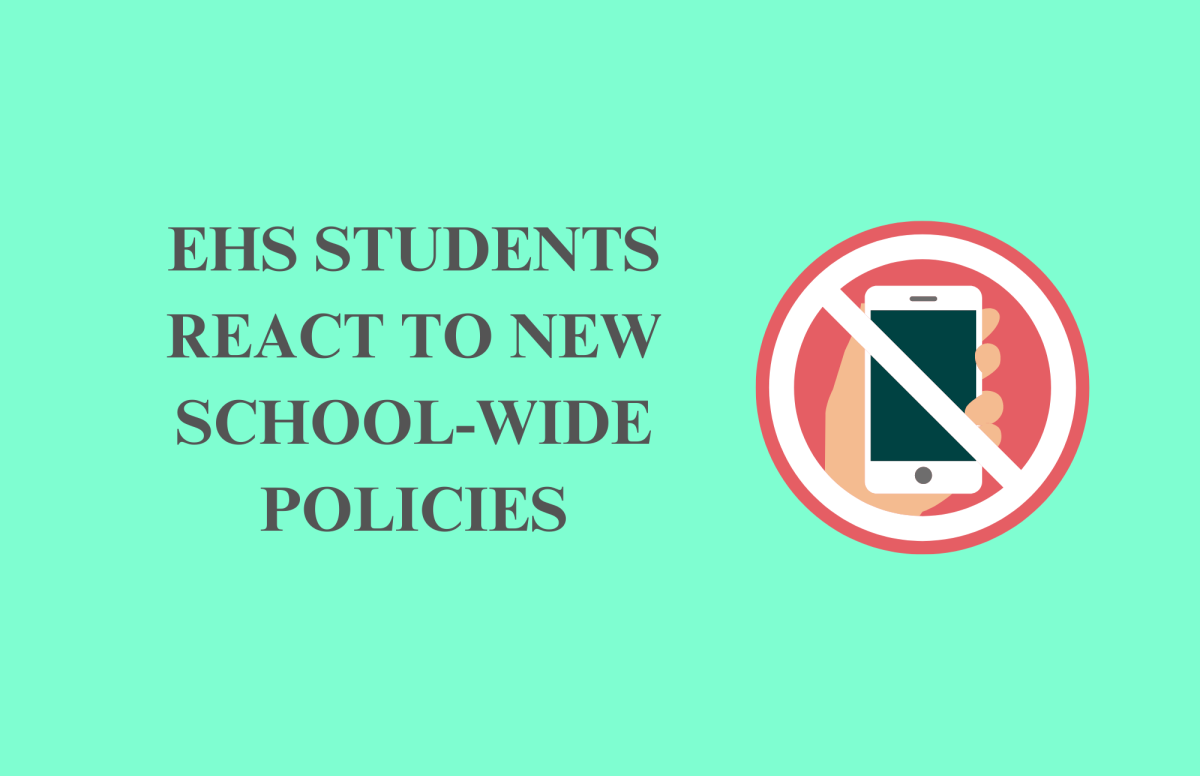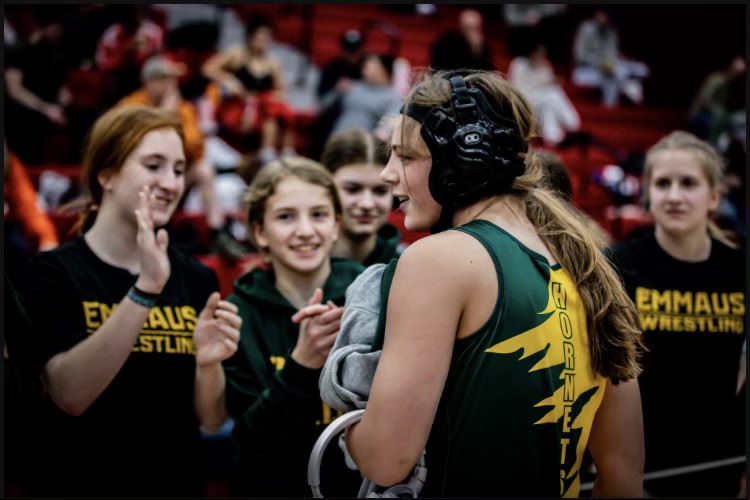“I think the classroom is more focused, but I also feel like it causes some extra stress because phones are so important to students,” freshman Jordan Rutkiewicz said in reference to Emmaus High School’s newly announced cell phone policy.
The new policies for the 2024-25 school year include a revised cell phone policy, Extended Learning, an after-school program to help students who are struggling academically, the loss of privileges due to poor academics and attendance, and more.
The new cell policy requires teachers to collect each individual’s cell phone and store it in a school-provided box or “caddy,” as opposed to last year when students had their pouches on their desks.
Sophomore Gebriele Ramirez feels the new policies were beneficial to her classes, causing a decrease in the use of cell phones during instructional time. Another student, senior Elizabeth Burns, agreed.
“[Sophomore year] we were allowed to have our phones in our backpacks, and that was basically like the pouch[es] because the pouches stayed on our desks, but people still went on [their phones] anyways,” Burns said.
In previous years at EHS, students were allowed to keep their cell phones on them or in their backpacks. In more recent years, students had to put their cell phones in pouches that were distributed to every classroom.
Principal Beth Guarriello feels the new procedure will help students be more attentive than the one in place prior.
“[And] if there’s an addiction, like with the cell phone, that student has a real hard time staying away from a pouch on the desk,” Guarriello said.
In order to improve school safety, EHS is also enforcing the code of conduct where students can receive up to three-day suspensions for propping open or opening an outside door for anyone.
Oftentimes, EHS students stay for after school activities. Junior Lucy Gosnell is one such student and sees the day-to-day issue from the enforced policy.
“I understand where the district is coming from about opening doors, but the punishment they have for it is extreme. I’m in a lot of after-school clubs, and kids have to go fetch stuff from their car sometimes,” Gosnell said.
Poor grades due to attendance issues is a universal problem for schools across the U.S., and a way for EHS to start controlling attendance and grading issues is by giving discipline to students. This comes in the form of losing out on privileges for multiple unexcused lates and absences to school. These lost privileges can include attending school dances, parking, and graduation. The attendance policy also requires doctor notes along with parent notes after several unexcused absences and tardies to school.
Some students worry about how the removal of certain privileges, such as school dances, would have a negative re-enforcement.
“I don’t think that [school dances, events, etc.] should be taken away because kids look forward to this stuff. It takes away the motivation for kids to do better in school,” Burns said.
Throughout every quarter, administration plans to monitor grades by viewing every student at EHS that is falling academically. For underclassmen, this can impact the privileges being given during their junior or senior year. Some students feel losing these privileges will hurt more than help.
“I have late arrival, and it helps me so much being able to sleep in,” Burns said. “We’re kids who have extracurricular activities and sports and work and school work. That’s not healthy, that’s not a good routine for an adolescent to get into, and especially because we’re more emotional, we’re teenagers, and this is why so many kids have mental health issues.”
Despite several student opinions, administration will keep moving forward to create a better classroom environment for students and teachers at EHS.







Leadfoot • Sep 27, 2024 at 11:22 am
I do security at a charter school and the already implement the lock boxes for the phones. I think it’s a good idea in every aspect. I get so tired of hearing this generation has issues with mental or physical. When my generation was a teenager, we went to school, worked, did chores, sports and didn’t complain as much as today’s generation. These kids today need structure and parents to be there for them in every way. Not just giving them what they want. We had to work for what we wanted. What’s gonna happen when they are adults? Still run home and get the potty from the parents.